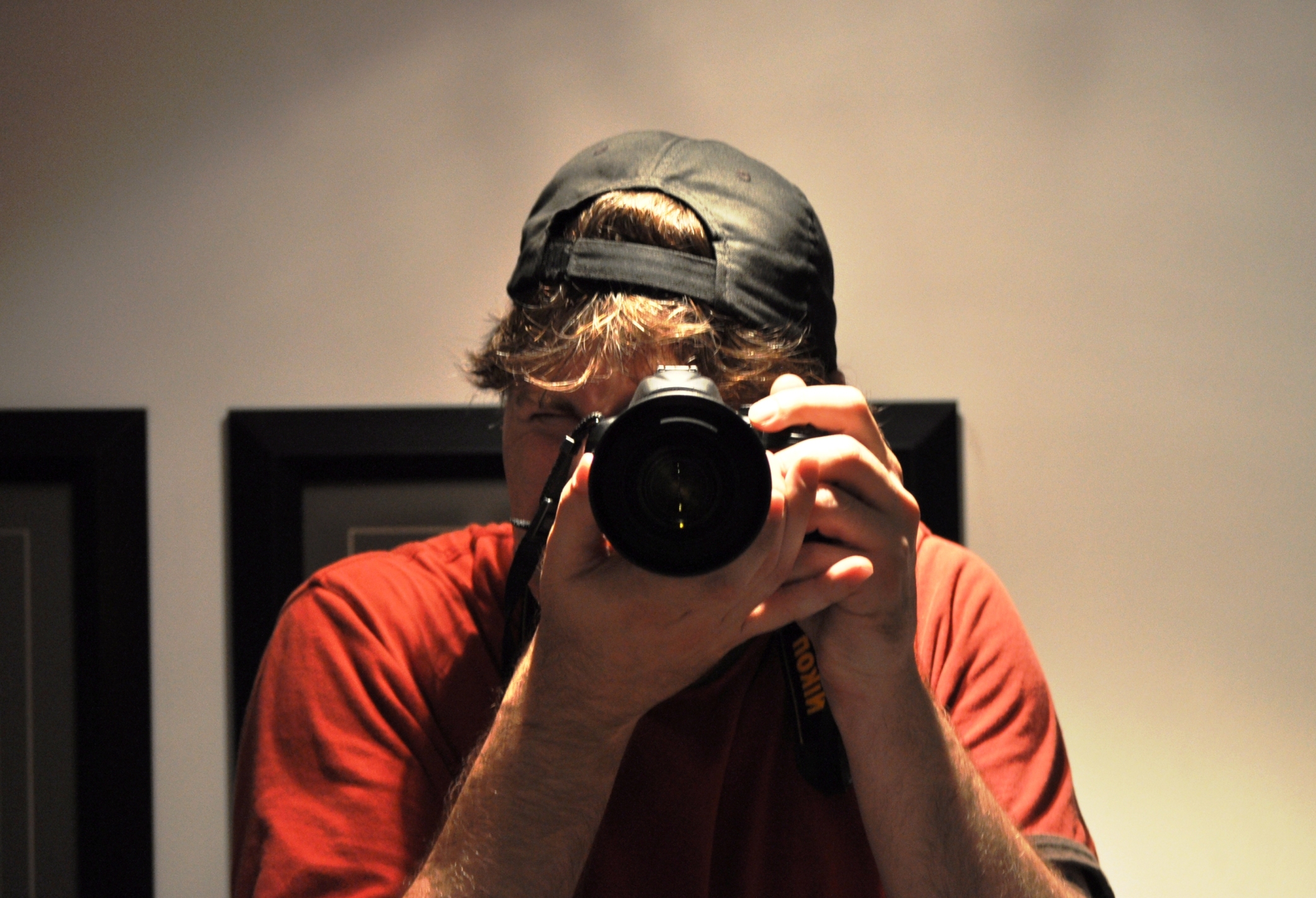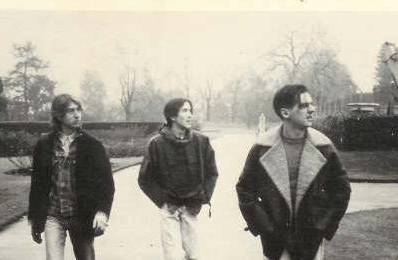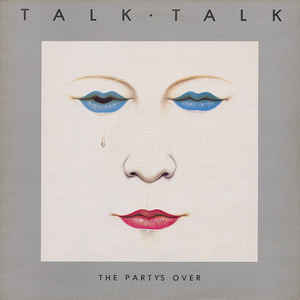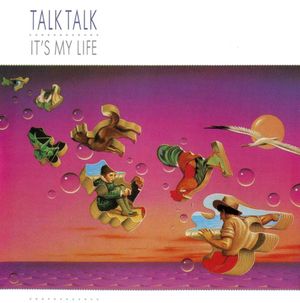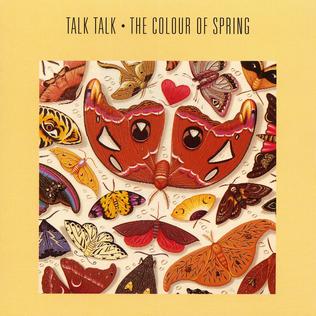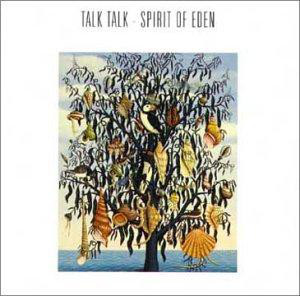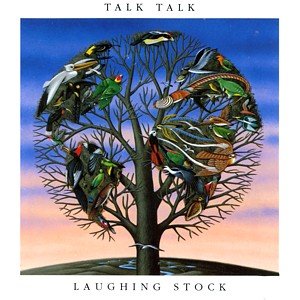Spirit of Eden: A Retrospective of Talk Talk
Click on the streaming service of your choice below to listen to the playlist as you read along.
Among the many new wave bands circulating in the early 1980s, one of my favourites was Talk Talk. They were the first band I ever saw live, so they hold a special place in my musical history. They are a band in which those who followed alternative music in the ‘80s would know well, and if you own an ‘80s compilation or listen to a stream you’ll inevitably come across their music, yet aside from reasonable success in their native England and minor success in the US, they never received wider acclaim. Their legacy and influence, however, have stretched through acts in the following decades that have embraced their penchant for arty, moody, atmospheric pop-rock.
The original 1982-83 quartet
They started mostly as a synth-pop band, evolved into a sophisticated pop-rock band, and finished as a more esoteric, experimental act. Talk Talk produced two of the best albums of the decade and one of my favourite of all-time before quickly receding into the background with their later, less accessible albums. By the time of their break-up in 1992 they’d issued five albums in ten years.
The first album in 1982 was produced by Duran Duran’s producer, and with an electro-pop sound and a similar, double-worded name as well as having toured with them, drew natural comparisons. The band though – Mark Hollis on vocals (and primary songwriter), Lee Harris on drums, Simon Brenner on keyboards, and Paul Webb on guitar – held little in common stylistically with the Duran crew, and it wouldn't be long before such comparisons dropped away. The first album offered the fantastic pop song that shared their band name and they had some success with an average, synth-pop song, “Today,” which reached #14 on the UK chart.
After another minor, non-album hit single, “My Foolish Friend,” the band released their second LP. They were now a trio as Brenner had left. Keyboards were handled by studio collaborator, Tim Friese-Greene, but he never officially joined the band (but remained a critical contributor throughout the rest of their history). While still full of electro-pop sounds, the album was more sophisticated and the quality was solid throughout – there wasn’t a bad song on the album. It is best known for the title track, “It’s My Life,” which became a minor international hit, though the album and singles only did moderately well in their native UK. It was while promoting this album that I saw them opening for the Psychedelic Furs at Kingswood, and thus made them the first band I ever saw live. I thought they were great and remember it to this day. I remember Paul Webb running across the stage and leaping off the drum riser as he strummed his acoustic guitar. I was wide-eyed and thought it was wonderful to hear “It’s My Life” which I knew from the radio.
Lee Harris; Mark Hollis; Paul Webb
They followed this with their third and greatest album, The Colour of Spring, in 1986. I still listen to this album often and it is a favourite go-to when I want to play some vinyl. On It’s My Life the musical style of the band had evolved, introducing more instrumentation to balance with the electronics. On Colour of Spring the synth sounds were all but gone, replaced with more traditional piano, organ and the odd effects, and the result was fuller, richer, more nuanced songs that moved through powerful chords and engaging, moody elements both up-tempo and slowed down to whispering, quiet moments. There were so many amazing, epic songs on this album, it astounds me it wasn’t a huge hit, but in the end I think it simply was the wrong sound at the wrong time. As new wave was giving over to hair rock, hip hop, and R&B, the art-rock of Talk Talk couldn’t rise above. “Life’s What You Make It” was a top 20 hit in the UK and cracked the top 100 in the US, and the album reached #8 in the UK and #58 in the US (not as good as the #42 spot It’s My Life achieved thanks to its hit single), but at their most sublime and artistically brilliant, Talk Talk wouldn’t be widely embraced. A fond memory I have of this album was listening to it with my friend, Phil, at his family’s cottage in the early ‘90s and losing ourselves in it amongst an intoxicated haze.
The fourth and fifth albums were moody, musically varied, generally down tempo, and sparse recordings. Written mostly by Hollis and Friese-Greene, they were studio-driven and experimental, and as a result not radio friendly or even set-up for live performances. Paul Webb left the band between the albums, leaving the last project as just a Hollis, Harris, and Friese-Greene effort. Though critically acclaimed, and riding on their past success the fourth album, Spirit of Eden, charted reasonably in the UK, but otherwise the band lost their audience and the chance for growing on their past success. All of this was despite the issuance of a very successful greatest hits album in 1990, Natural History (#3 in the UK), and the re-release of “It’s My Life” that gave them their most successful single at #13 in the UK. In 1992 Hollis disbanded Talk Talk to focus on his family and they’ve never come back together.
Casual fans might view Talk Talk as one of many new wave bands that had a couple of minor hits in the ‘80s and otherwise were of little consequence. To some degree that’s true, but the other side of the story is of a band that issued five strong and interesting albums, and two stunning albums that deserve to be held in the highest levels of regard for their period. Many artists in the 1990s have cited Talk Talk as being influential on their sound, and some – such as No Doubt in 2003 with their cover of “It’s My Life” – have had success covering their music. They were one of my favourite bands of my teens and a constant presence on my turntable and in mixtapes – and of course the first band to give me the taste of live music, a hobby I cherish and celebrate to this day.
Update (Feb 27, 2019) – On February 25 the sad news came out of Mark Hollis’ passing at the young age of 64. The cause of death has not been revealed other than he had a short battle with an illness. While there hasn’t been any expectation of further music from Hollis or Talk Talk (Hollis last released a solo album in 1998 and otherwise has only done guest work for others as well as a bit of TV work, choosing to focus on his family over a music career), this puts a lamentable finality to any such prospects.
Details that have surprised me within the reviews of his life and contributions have been: 1) a greater level of appreciation for the creativity and influence of the band; and 2) a focus on the album, Spirit of Eden, as Talk Talk’s crowning creative achievement.
The first point might be the natural tendency towards superlatives for an artist upon their passing, but also by the same dynamic have simply brought out genuine feelings that were less expressed absent a triggering event. I have no doubt that Hollis and Talk Talk were brilliant and influential, so it’s nice to hear this view has been more widely shared than was evident before.
The second point differs from my view, as I wrote in the original post above, but that is as much because I’ve listened to their earlier albums far more than their last two and have not given myself the chance to absorb the last two albums as fully. I will do this now, thankfully, and out of appreciation of the broader feedback that’s now coming forward. I suspect Spirit of Eden has been appreciated by a more discerning audience less inclined to the more pop sounding earlier albums, an inclination to which I’m very open, yet takes nothing away from the quality and appreciation of the other LPs.
What can be said, regardless the subjective views of which albums appeal relative to others, is that Hollis and Talk Talk left us a wonderful legacy and variety of music that can be celebrated, enjoyed, and appreciated and give Hollis his due upon his untimely passing.
The Playlist - Song \ Album (Year)
Talk Talk - The Party's Over (1982)
It’s So Serious - The Party's Over (1982)
Have You Heard the News - The Party's Over (1982)
My Foolish Friend - non-album single (1983)
Dum Dum Girl - It's My Life (1984)
Such A Shame - It's My Life (1984)
It’s My Life - It's My Life (1984)
Call in the Night Boy - It's My Life (1984)
I Don’t Believe in You - The Colour of Spring (1986)
Life’s What You Make It - The Colour of Spring (1986)
Living in Another World - The Colour of Spring (1986)
Give It Up - The Colour of Spring (1986)
I Believe in You - Spirit of Eden (1988)
Ascension Day - Laughing Stock (1991)
